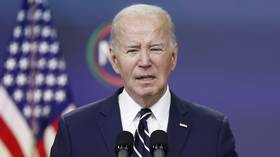Interview with Francis Fukuyama
Francis Fukuyama, well-known American political scientist, comments on U.S. foreign policy and Russia-U.S. relations.
Russia Today: Professor, in the past you’ve been considered a neo-conservative, but you appear to have changed your view. What made you change your mind?
F.F.: My neo-conservative friends in the Bush administration were making for the Iraq war about the way they wanted to use American power, and I just didn’t think this was all plausible, because I didn’t think that they understood how difficult the situation would be after an intervention in Iraq. They didn’t really have plans on how to actually build a democracy. I think there was a hope that democracy would simply arise. This was the moment when I decided this wasn’t a good project.
RT: What can Russia learn from your new book [America at the Crossroads: Democracy, Power, and the Neoconservative Legacy – RT]? Would you say that Russia is on the right path to democracy?
F.F.: Well, there are many components of a well-functioning democracy. Russia has elections, it has democratic legitimacy. But I think there are other components that are missing – there is increasing governmental control over the media, there is reduced accountability to other institutions – to parliament, to judiciary – there is dampening of civil society. I think those institutions of accountability also are part of democracy, and I think they could be much stronger in Russia.
RT: Russia and the U.S. have been engaged recently in political disputes. What is, you think, the future for the U.S.-Russia relations?
F.F.: I think that there is a great hope that Russia would go the way of Poland or Hungary and make a rapid transition to what we regard as modern liberal democracy. But Russia faced a lot of problems in the 1990s, and that didn’t happen. So I think there was a sense of disappointment on the part of many Americans on that.












